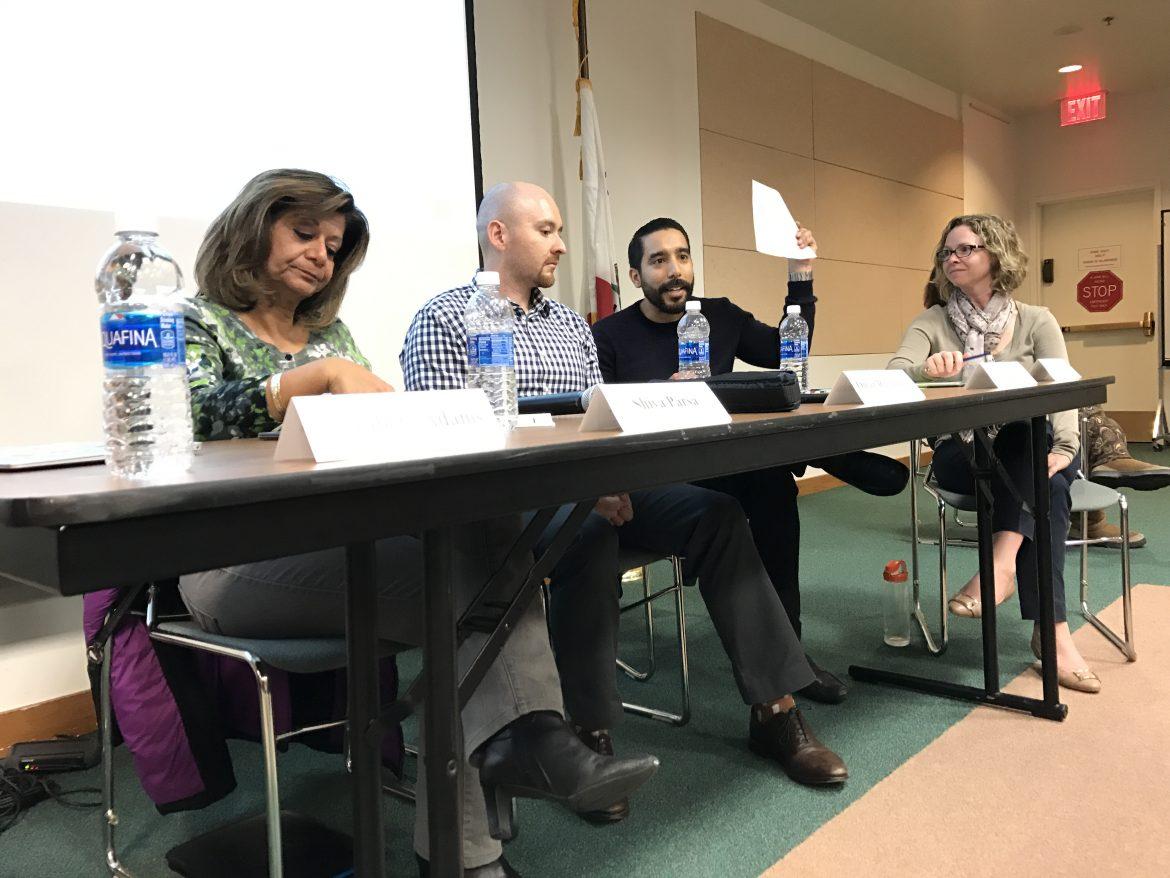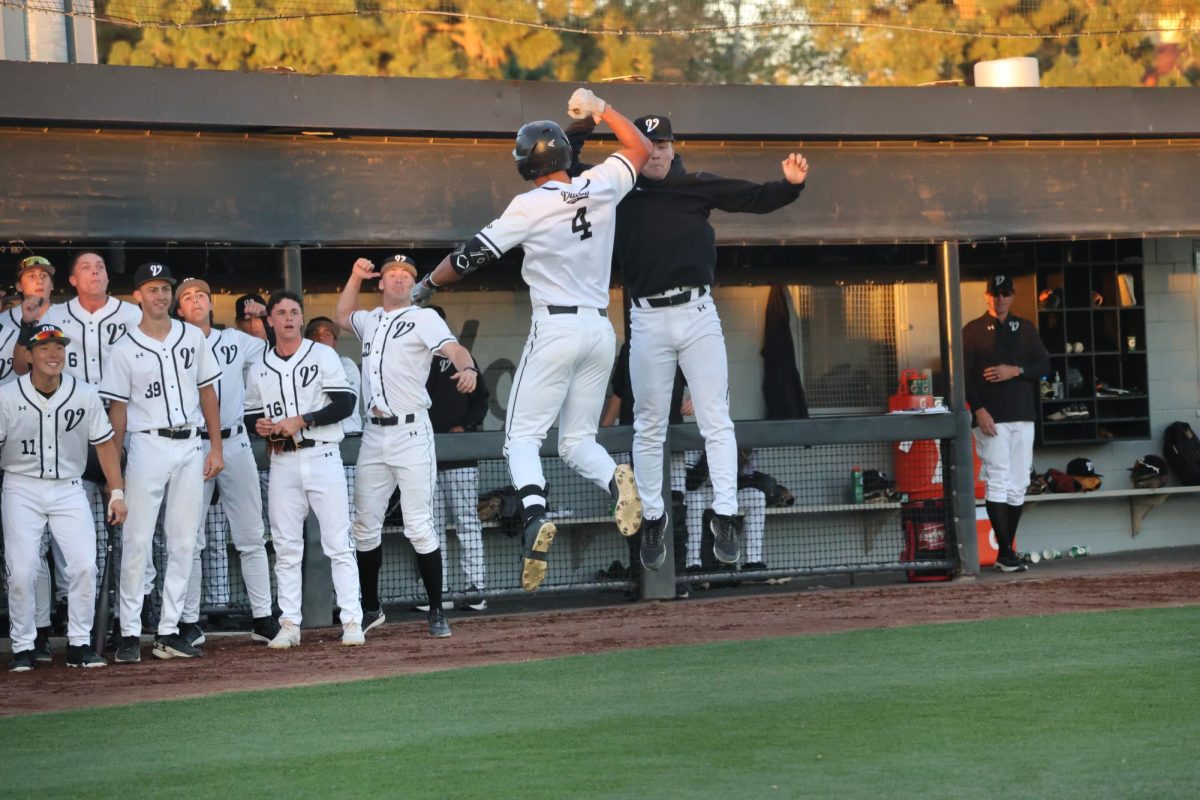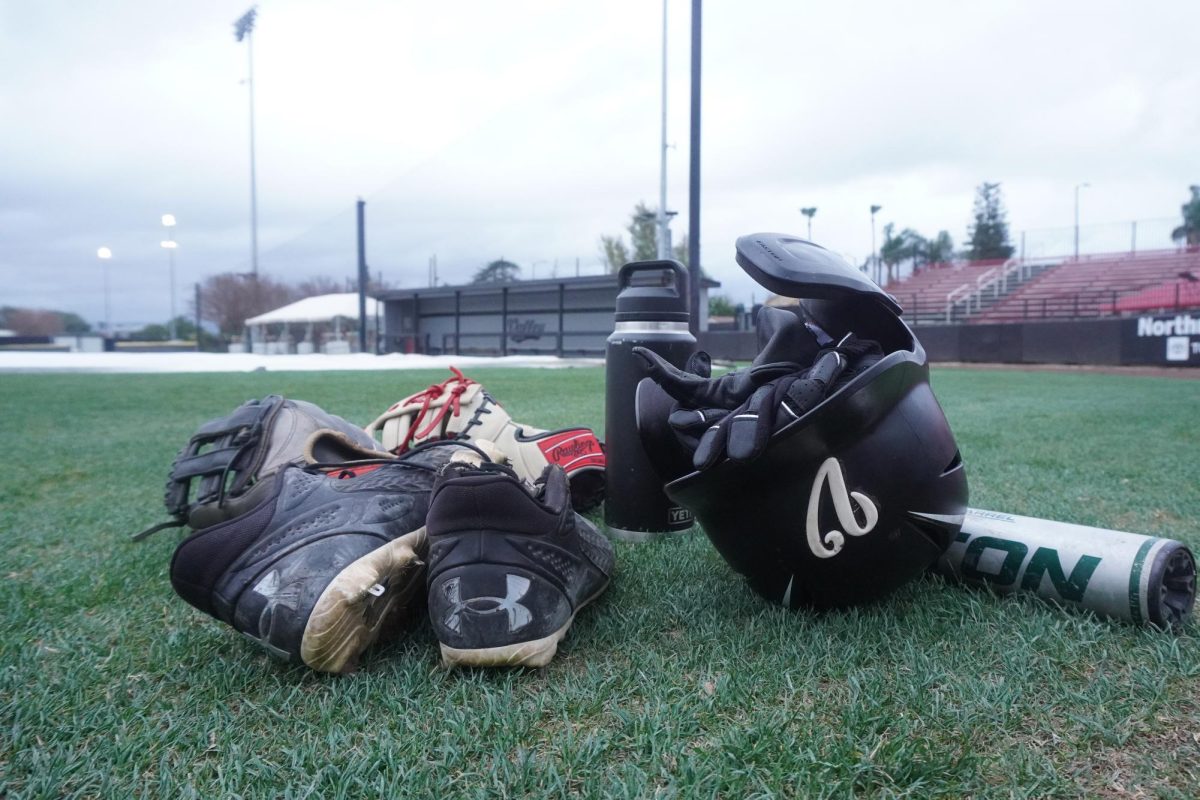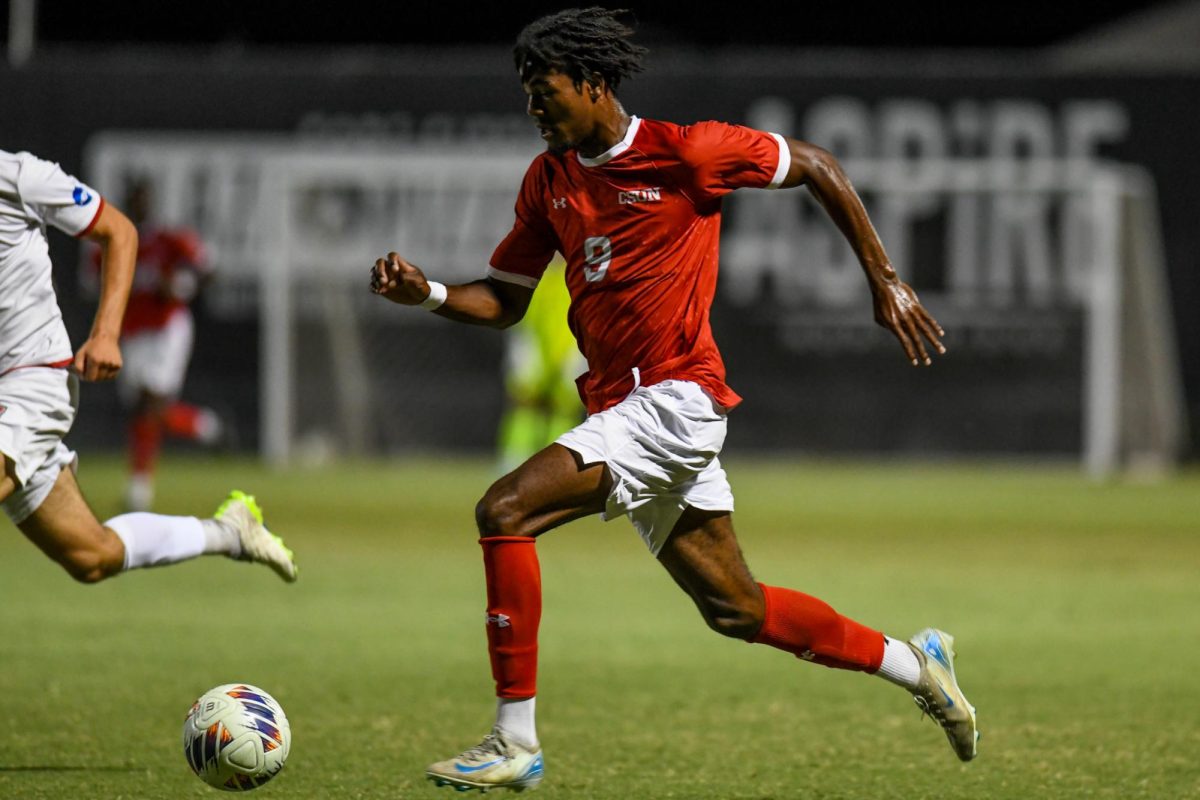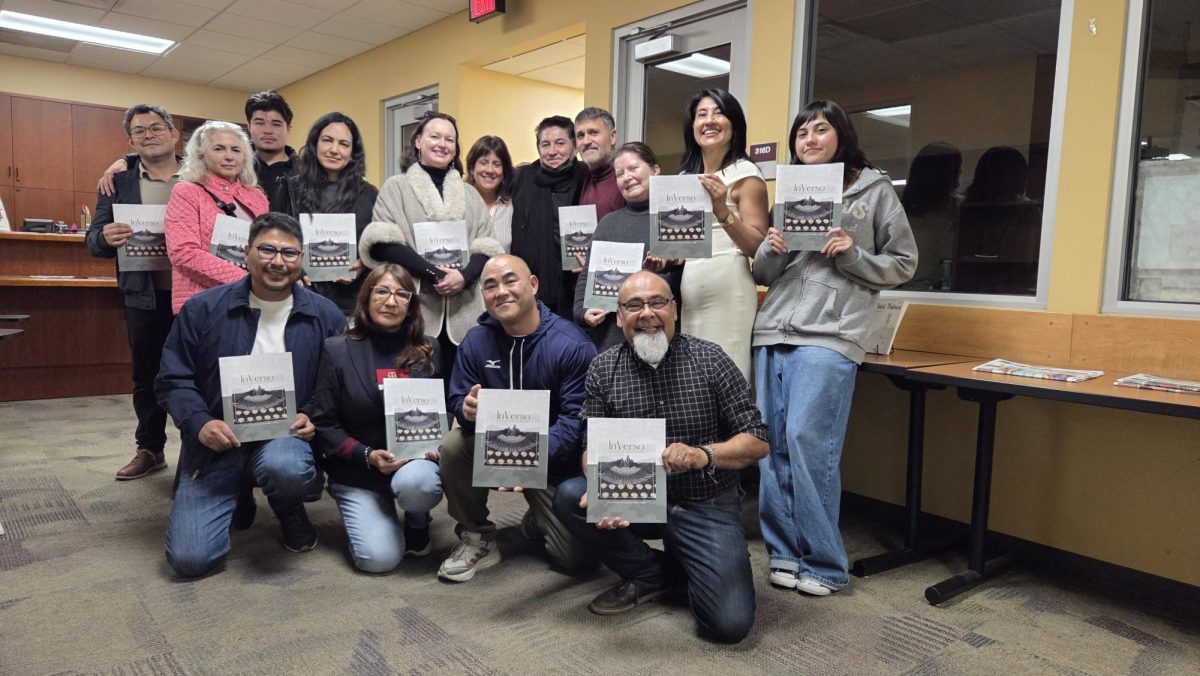Students, faculty, and staff took part in a lively discussion Friday afternoon on a topic that is central to the university’s mission of serving a traditionally underserved student population.
“What You Call It Matters: The Opportunity Gaps at CSUN” was the latest installment in a Town Hall series that focused on creating a dialogue between members of the CSUN community. The dialogue referred to the ways the institution can address disparities in student success rates.
The 90-minute meeting was hosted by the Office of Student Success Innovations (OSSI) and was open to everyone in the CSUN community.
Krista Michaud, director of the Office of Student Success Innovations, explained that the disparity is also known as the “achievement gap” between students from disadvantaged socioeconomic backgrounds and their more successful peers.
“The reason we refer to it as the opportunity gap instead of the achievement gap is because the term ‘achievement’ makes it sounds as if it’s the student’s lack of achieving that has resulted in the differences in success rates, rather than the differential opportunities that our students have had before they got to our institution,” she said.
Associate Vice President of Student Success Elizabeth Adams facilitated the talk, which also included input from a four-member panel of faculty and staff who each brought a different perspective on the topic.
Alison Hochman, a graduate student in the general experimental psychology program, said she attended because she is passionate about the topic of opportunity gaps in higher education.
Hochman struggled through her undergraduate career but has found her footing as a grad student. She said she understands how difficult in can be for students to move beyond their backgrounds and find success in school and life.
“Why is their past still holding them back when they’re trying so hard to be successful?” Hochman said.
The need for these conversations is especially urgent for the CSUN community as the institution approaches its 60th anniversary, said Adams.
“At this moment, I think we all have to have that conversation and acknowledge that who we are, and who will be in the future, is very different from who we were in the past.”
